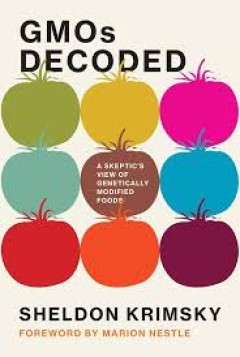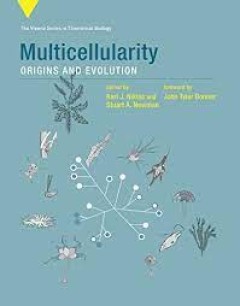Filter by

Abiotic Stress Response in Plants
Plants, unlike animals, are sessile. This demands that adverse changes in their environment are quickly recognized, distinguished and responded to with suitable reactions. Drought, heat, cold and salinity are among the major abiotic stresses that adversely affect plant growth and productivity. In general, abiotic stress often causes a series of morphological, physiological, biochemical and mole…
- Edition
- -
- ISBN/ISSN
- 9789533076720,
- Collation
- oer.unej.ac.id
- Series Title
- -
- Call Number
- Botany and plant sciences

Embodied computing :wearables, implantables, embeddables, ingestibles
"Embodied technologies such as wearable tracking bracelets, ingestible sensors, embeddable prosthetics, and implantable microchips all stand to redefine the human experience and what it means to speak of technology and the body. No longer the speculative stuff of science fiction, embodied technologies have arrived and are being developed by a variety of industries at an alarming rate. Embodied …
- Edition
- -
- ISBN/ISSN
- 0262357798
- Collation
- 1 online resource.
- Series Title
- -
- Call Number
- -

Seeds, science, and struggle :the global politics of transgenic crops
An examination of how advocates for alternative agriculture confront "science-based" regulation of genetically engineered crops.OCLC-licensed vendor bibliographic record.
- Edition
- -
- ISBN/ISSN
- 9780262305570
- Collation
- 1 online resource.
- Series Title
- -
- Call Number
- -

GMOs decoded a skeptic's view of genetically modified foods
The debate over genetically modified organisms: health and safety concerns, environmental impact, and scientific opinions. Since they were introduced to the market in the late 1990s, GMOs (genetically modified organisms, including genetically modified crops), have been subject to a barrage of criticism. Agriculture has welcomed this new technology, but public opposition has been loud and scient…
- Edition
- -
- ISBN/ISSN
- 9780262350747
- Collation
- 1 online resource (xxii, 191 pages) :illustrations
- Series Title
- -
- Call Number
- -

Producing power :the pre-Chernobyl history of the Soviet nuclear industry
An examination of how the technical choices, social hierarchies, economic structures, and political dynamics shaped the Soviet nuclear industry leading up to Chernobyl.OCLC-licensed vendor bibliographic record.
- Edition
- -
- ISBN/ISSN
- 9780262321792
- Collation
- 1 online resource (xxxi, 362 pages) :illustrations.
- Series Title
- -
- Call Number
- -

Climate of Capitulation: An Insider's Account of State Power in a Coal Nation
How power is wielded in environmental policy making at the state level, and how to redress the ingrained favoritism toward coal and electric utilities.OCLC-licensed vendor bibliographic record.
- Edition
- -
- ISBN/ISSN
- 9780262340663
- Collation
- 1 online resource (xi, 242 pages) :illustrations, map
- Series Title
- -
- Call Number
- -

Multicellularity origins and evolution
Scholars consider the origins and consequences of the evolution of multicellularity, addressing a range of organisms, experimental protocols, theoretical concepts, and philosophical issues.OCLC-licensed vendor bibliographic record.
- Edition
- -
- ISBN/ISSN
- 9780262333740
- Collation
- 1 online resource (xxv, 302 pages) :illustrations.
- Series Title
- -
- Call Number
- -

Seed activism :patent politics and litigation in the global south
"Seed Activism is an ethnography of court challenges to corporate intellectual property (IP) rights and practices in Brazil and India. Based on a wealth of interviews with a diverse range of actors-from farmers and plant breeders to corporate lawyers-the book offers the first detailed ethnographic account of the legal disputes that have arisen in the past decade around patents and royalties on …
- Edition
- -
- ISBN/ISSN
- 9780262372237
- Collation
- 1 online resource.
- Series Title
- -
- Call Number
- -

Smokestack diplomacy :cooperation and conflict in East-West environmental pol…
Many environmental problems cross national boundaries and can be addressed only through international cooperation. In this book Robert Darst examines transnational efforts to promote environmental protection in the USSR and in five of its successor states--Russia, Ukraine, and the Baltic republics of Estonia, Latvia, and Lithuania--from the late 1960s to the present. The core of the book is a c…
- Edition
- -
- ISBN/ISSN
- 9780262271196
- Collation
- 1 online resource (xii, 300 pages).
- Series Title
- -
- Call Number
- -
Phytocosmetics and Phytopharmaceuticals from African Medicinal Plants
- Edition
- -
- ISBN/ISSN
- 978-1-80356-020-5
- Collation
- -
- Series Title
- -
- Call Number
- -
 Computer Science, Information & General Works
Computer Science, Information & General Works  Philosophy & Psychology
Philosophy & Psychology  Religion
Religion  Social Sciences
Social Sciences  Language
Language  Pure Science
Pure Science  Applied Sciences
Applied Sciences  Art & Recreation
Art & Recreation  Literature
Literature  History & Geography
History & Geography